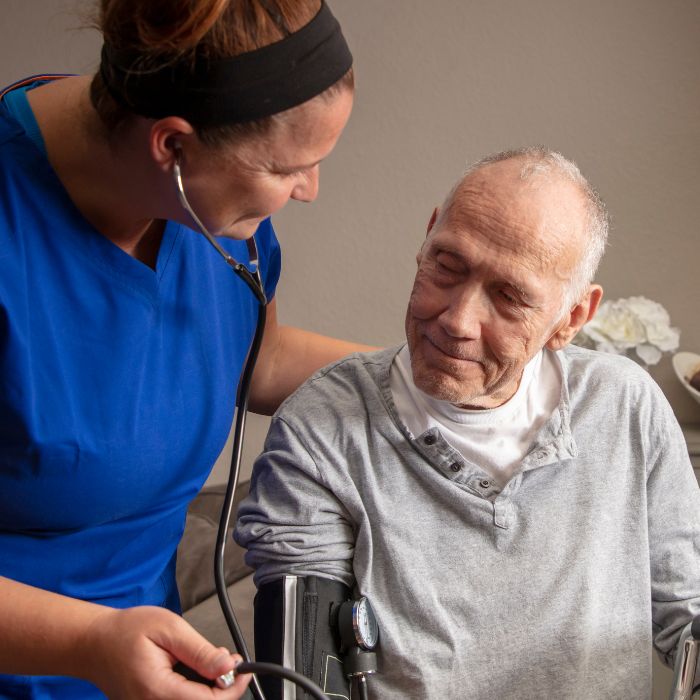Advance Care Directive
Plan Your Later Life Healthcare Today — Easing the Burden Tomorrow
Advanced Medical Directives
In the future, you may sadly be unable to make informed decisions on your healthcare — an Advance Care Directive outlines your wishes today, to ease the burden on your loved ones tomorrow.
You don’t know what the years to come hold in store. Injury, serious illness, or deteriorating mental cognition may prevent you from making reliable and considered choices regarding your health.
This means that loved ones, family members, or healthcare professionals may have to make these decisions on your behalf — which can often place a distressing weight on their shoulders.
Falzon Legal will considerately and supportively guide you through planning and forming a robust Advance Healthcare Directive. Allowing you to welcome the coming years with comforting peace of mind, and giving loved one’s the reassuring guidance they need.
What Is Advance Care Planning?
An Advance Care Directive — sometimes called an Advanced Medical Directive — outlines your healthcare wishes should you be unable to make informed decisions in the future.
While in theory, it can be as simple as telling family members your health intentions — most usually, it is prepared as a legal document by a solicitor to ensure that there are no confusions or ambiguities.
Often it includes:
- The treatment you consent or refuse to accept if you’re in a life-threatening position.
- Personal preferences and values — such as home or hospital palliative care, or cultural and religious beliefs.
- The person you would like to make medical and care choices on your behalf — should you lose decision-making capacity.

Who Can Make an Advanced Care Directive?
Any Australian adult may create an Advanced Care Directive — although it is most commonly prepared by people entering their later-life years. The requirements for making a directive are:
- You are over 18 years of age.
- You created the directive voluntarily and without duress or coercion.
- Your directive is made while you still have capacity.
The final requirement of capacity is crucial — indicating that when you write the Advance Directive, you are able to make informed decisions for yourself. Generally, you are considered to have capacity when:
- You comprehend the choices you are making.
- You’re able to see the advantages and disadvantages of your choices.
- You understand how your choices will impact you in the future.
- You’re making your choices freely and without duress.
- You’re capable of communicating your choices orally or in writing.
Anyone who is unable to meet these criteria cannot create an Advance Directive of Care.
Make Your Decisions Today While You Still Have Capacity — Talk to Us NOW
When Will My Advanced Care Directive Take Effect?

Your Advance Health Directives only apply when you lose the capacity to make decisions for yourself. This could be due to a progressive issue — such as dementia — or if you suddenly fall into a coma after an accident.
In most circumstances, health professionals must follow your instructions outlined in the directive — even if they do not agree with your choices, or if it means not administering life-saving treatment.
However, healthcare professionals will always refer to your directives and ask the critical question — is it valid? Most crucially, examining whether your choices are applicable to your current position or situation.
For example, if you trip over your carpet, hit your head, and you become unconscious and unable to make a decision — there would be a reasonable assumption that your condition will improve. Therefore, your end-of-life refusal of treatment directives would not apply.
Additionally, a healthcare practitioner may not follow your wishes if, when you lack capacity:
- They believe a directive is too vague to make a decision.
- Circumstances have changed since the directive was made that make it unlikely you would make the same choice today.
How Do I Make an Advance Care Health Directive?
Initially, take time to consider whether an Advanced Medical Directive is for you, and if so, think about:
- The type of treatment you would refuse or accept.
- If you were in an end-of-life position, would you wish to be cared for in a hospital, palliative care unit, or in your home.
- A person whom you trust to make choices on your behalf.
- Spiritual or cultural practices you would want when dying.
- The permanent circumstances that you would consider so unbearable that you would not wish to have life-saving treatment, for example:
- Unable to use your bowels.
- Not recognising family or friends.
- Inability to clothe or feed yourself.
- Only able to accept water and nourishment through tubes.
- Confusion and lack of awareness of your surroundings.
It may help to discuss your feelings and thoughts with a loved one or trusted friend. Often other people can offer insight that you have not considered.
At Falzon Legal, we cannot tell you what is the right or wrong choice.
We will, however, provide unparalleled supportive and considerate advice — empathetically explaining what your decisions and choices mean for you and your family.
In contrast to many of the other states in Australia, NSW does not have a statutory Advance Care Directive form that you need to complete. A simple oral communication or handwritten indication of your care wishes are, in theory, permissible.
However, such informal routes are easily open to contest and challenge — and might lead to circumstances where your choices are not followed.

Therefore, Falzon Legal will patiently and understandingly help you build a legally-tight Advanced Medical Plan.
Unambiguous in explaining your wishes and preferences — and dated and witnessed — it will ensure that should you lose capacity in the future, your choices are clearly demonstrated to family members and healthcare professionals.
Advanced Care, Enduring Guardianship, and Power of Attorney
Your Advance Care document will outline the person you wish to make healthcare decisions on your behalf — should you lack the ability to make an informed decision in the future.
However, your medical care is just one part of your wellbeing and assistance needs.
For example, your bank accounts, legal documents, accommodation, and social care requirements will also need to be addressed. Therefore, when considering making an Advance Healthcare Directive — it’s also common to think about arranging Enduring Guardianship and Power of Attorney.
Both of these appointments involve naming a trusted friend or relative to make decisions on your behalf when you’re incapable. Generally speaking, an Enduring Guardian addresses health, social, and housing decisions — whereas Power of Attorney attends to legal and financial choices.
And, while these positions do carry legal authority — it’s worth remembering that they cannot overrule any choices you have made in your Advance Healthcare Directive.
Falzon Legal will considerately navigate you through Advance Care Health Directives, Power of Attorney, and Guardianship. Ceaselessly supportive, we will ensure you remain comfortable throughout what can sometimes be an emotional area.
Falzon Legal — Compassionate, Understanding, and Supportive

It can be emotionally challenging to consider a time when not only are you in a life-threatening position through illness — but also lack the capacity to make a decision regarding your healthcare.
Yet, proactively acting now to create an Advanced Care and End of Life Directive provides immeasurable comfort and consolation to both you and your loved ones.
For you, it means reassurance — knowing that you have unambiguously stated your healthcare choices and preferences. For your family, it relieves the heart-wrenching burden and turmoil of wondering whether to withdraw or continue medical treatment.
Falzon Legal will guide you considerately and patiently through the whole process.
Whether talking in our Parramatta office — or in your home, hospital, or aged care facility — we will lead you compassionately by the hand through your options, choices, and implications.
Becoming your trusted advisor, counsel, and friend — together, we will build a comforting end-of-life pathway.
Planning today for your healthcare tomorrow delivers solace, peace, and relief — let Falzon Legal show you the way.
Advanced Care Planning FAQs
Is Healthcare Covered by Power of Attorney?
No. Power of Attorney permits an authorised person to address your property and financial matters. Healthcare and wellbeing are covered by an Enduring Guardian.
Can I Put My Healthcare Choices in My Will?
No. Your Last Will and Testament will be opened after you have died. Instead, an Advanced Care Health Directive details your medical treatment wishes to healthcare professionals and family members while you’re alive — yet are incapable of making informed decisions.
Can I Put My Consent to Euthanasia in My Advanced Medical Directive?
An Advance Health Directive NSW — indeed in all Australian states and territories — can never state that you wish your life to be ended on purpose.
It can, however, indicate circumstances where you have lost cognition, have little to no chance of recovery, and wish to refuse treatment.
Can I Say I Want a Particular Medical Treatment?
You can indicate your medical treatment preferences, but you cannot insist on a specific medicine or procedure. While healthcare professionals will take into account your choices, they will not deliver any treatment that has zero benefit.
Can I Revoke My Advance Care Medical Directive?
Yes. You can change, alter, amend, or cancel your Advance Medical Health Directive at any time. It’s advisable to re-read your Directive once a year, to ensure that your opinions and preferences remain the same as those indicated.
If you decide to make an amendment, we can help you with building a new and witnessed directive. It’s also sensible to inform family members and friends of your changes.
Where Can I Find a Medical Directive Form NSW?
NSW doesn’t have a specific Advanced Care Form. Instead, speak to us, and we will create a bespoke Advance Care Directive on your behalf — clearly stating your healthcare wishes.
